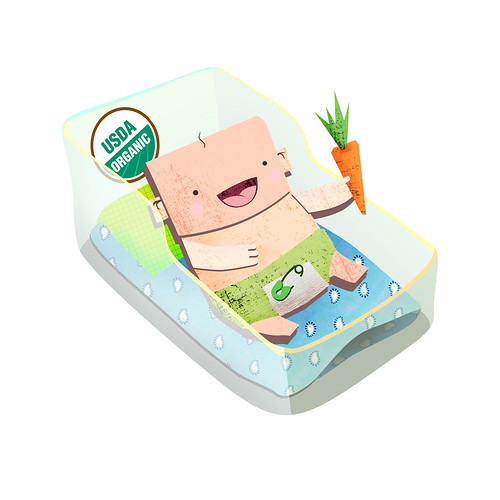So yesterday was the last day of February, which also marked the end of my Locavore Challenge. I made it to the end! Wooot~! Ok, fine, I'll admit that I cheated a bit and bought some non-Korean things. With all the baking that went down in February, I ran out of canola oil and sugar (neither are produced in Korea) and therefore, had to restock my supply! Yea, and that's not all. I also bought chocolate chips and cocoa powder... . I've realized that this baking hobby of mine does not lend itself so well to eating local. You simply can't bake anything delicious without oil, or sugar! Or chocolate! And since I wasn't willing to give up baking, I had to cave and buy those ingredients~~~ You guys understand though, rah? Besides, how else would I have made all those strawberry shortcakes and mint thins? :) It simply had to be done.
Other than those items, I'm proud to say that I stuck to the challenge. Finding domestic-grown fresh produce was a piece of cake. I'm always making trips to my local outdoor market anyway, and stopping to buy fruit from the fruit trucks parked around my neighborhood, so my actual grocery-shopping routine wasn't altered much. However, the hard part was resisting certain imported foods that are in season like kabocha squash from New Zealand, and navel oranges from Cali. They're so abundant and cheap right now, and I was tempted on multiple occasions. Other foods that I had to hold off on were mook acorn jelly (most are made with acorn powder from China), chick peas, and lemons. I'm gonna go to the store and buy lemons today because I've realized that life is bland without them. In addition to adding lemon juice and zest in baked goods, I like having fresh lemon-ginger tea before I go to bed, and I really missed that part of my nightly routine last month! Surprisingly though, I actually didn't miss bananas as much as I thought I would.
Overall, I'm really glad I did this mini challenge. Even though it was really short and I cheated here and there (hehe), I still gained a lot from this experience. I became more aware of the foods that are always imported, and learned which items typically come from where (soy beans from China, walnuts and almonds from California, etc). I basically gained a greater understanding of the global food supply and how it connects us with countries all over the world. It also made me appreciate certain foods more, such as chocolate and coffee, and I've come to value them as the luxuries that they are. Moving forward, I hope to continue to eat as local as I can. That way, my carbon footprint will be smaller, I'll be able to support Korean farmers, help strengthen and diversify the community here, and my body will also get to taste fresher, more nutritious, and seasonal flavors. Cool beans.
So now that it's March 1st, I reckon it's time for another challenge! After looking through my 101 List, I've decided to try eating more organic this month (#94 on the list). It's kind of related to the Locavore challenge in that my reasons behind it have a lot to do with environmental factors (protect farmland and water quality, etc). Ofcourse, health is also a big reason for eating organic since I can't imagine eating chemical pesticides to be very good. Since buying organic here in Korea is realllly expensive and harder to find, I'm not gonna be militant about only buying organic all the time, but I'll do the best can. I'll mainly focus on avoiding "the Dirty Dozen," which according to this CNN article, include:
- Celery
- Peaches
- Strawberries
- Apples
- Domestic blueberries
- Nectarines
- Sweet bell peppers
- Spinach, kale and collard greens
- Cherries
- Potatoes
- Imported grapes
- Lettuce
- Onions
- Avocados
- Sweet corn
- Pineapples
- Mango
- Sweet peas
- Asparagus
- Kiwi fruit
- Cabbage
- Eggplant
- Cantaloupe
- Watermelon
- Grapefruit
- Sweet potatoes
- Sweet onions

An illustration I did a while ago, entitled 'Raising an Organic Family.'
And if anyone's wondering, here are some places I know of to buy organic produce in Seoul:
Orga Whole Foods
Department store supermarkets (Lotte, Hyundai, Shinsaegae)
E-Mart & Home Plus (the organic sections)